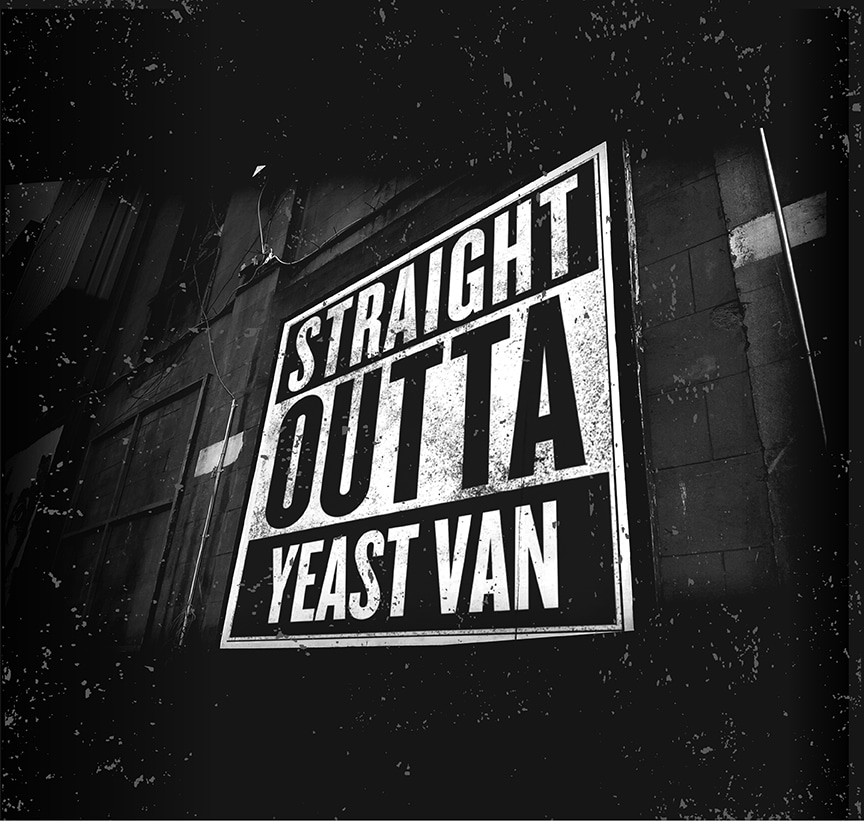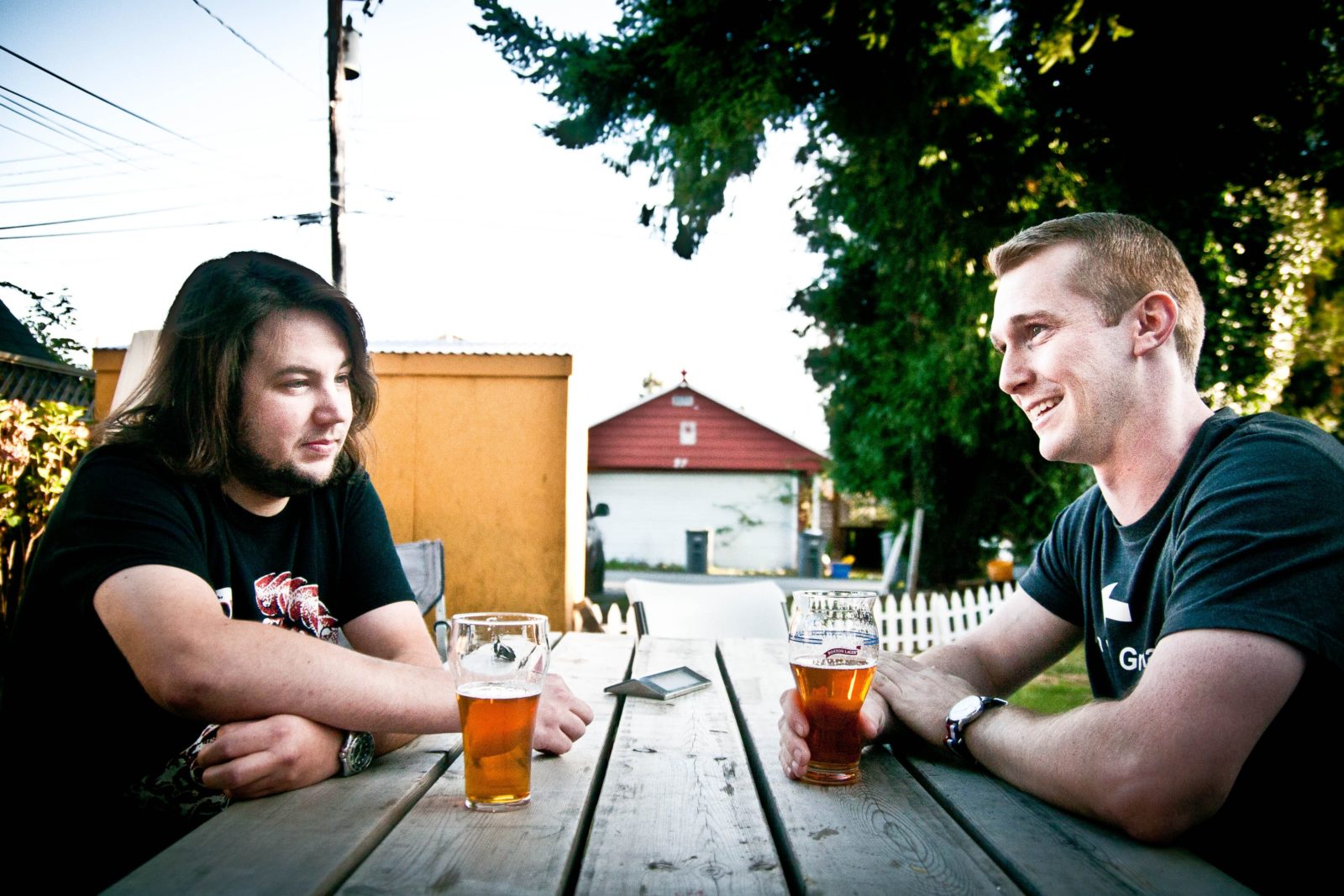B.C.’s new crop of farm breweries

Growing up on a farm in Langley, Mel MacInnes has seen many different things happen on her land. When she was a kid, her family raised dairy cows. After they got out of the dairy business, they boarded horses and hosted movie shoots. But the thing that stayed the same throughout was a constant, unsettling question: “Every family discussion was, like, how do we keep the farm?” Like so many other rural families, they constantly searched for ways to keep their farm business afloat so that the land could stay in their own hands and not be developed beyond recognition. “It was just like in the movies.”
The next part isn’t like the movies, at least not yet. This summer, MacInnes and her husband Andy Hamer plan to open Locality Brewing, giving local beer fans the opportunity to drink within metres of where their beer’s ingredients grew, and giving MacInnes Farms a new lease on life. And they’re in good company—in the last few years, several farm-based breweries have opened across the province. Some of them owe their existence directly to Crannóg Ales’ and Persephone Brewing Company’s struggles with the provincial government’s Agricultural Land Reserve (ALR) regulations. These came to a head in 2016 when the two breweries were asked to choose between closure or compliance with a clause requiring them to grow 50 per cent of their raw ingredients on site, something neither brewery was able to do. After the provincial election in 2017, though, the new NDP government amended the regulations to allow breweries located on the ALR to source half of their raw ingredients from other B.C. farms if they are unable to grow sufficient quantities themselves, a privilege already enjoyed by B.C. wineries and cideries. It was an existential victory for Crannóg and Persephone, but some critics wondered whether the move would be exploited by breweries moving to farmland without a serious intent to actually ever farm.
It’s a fair question to ask. But what’s clear is that, three years after the regulations were amended, B.C.’s new farm breweries are showing they’re up for the challenge of farming as much as that of brewing.
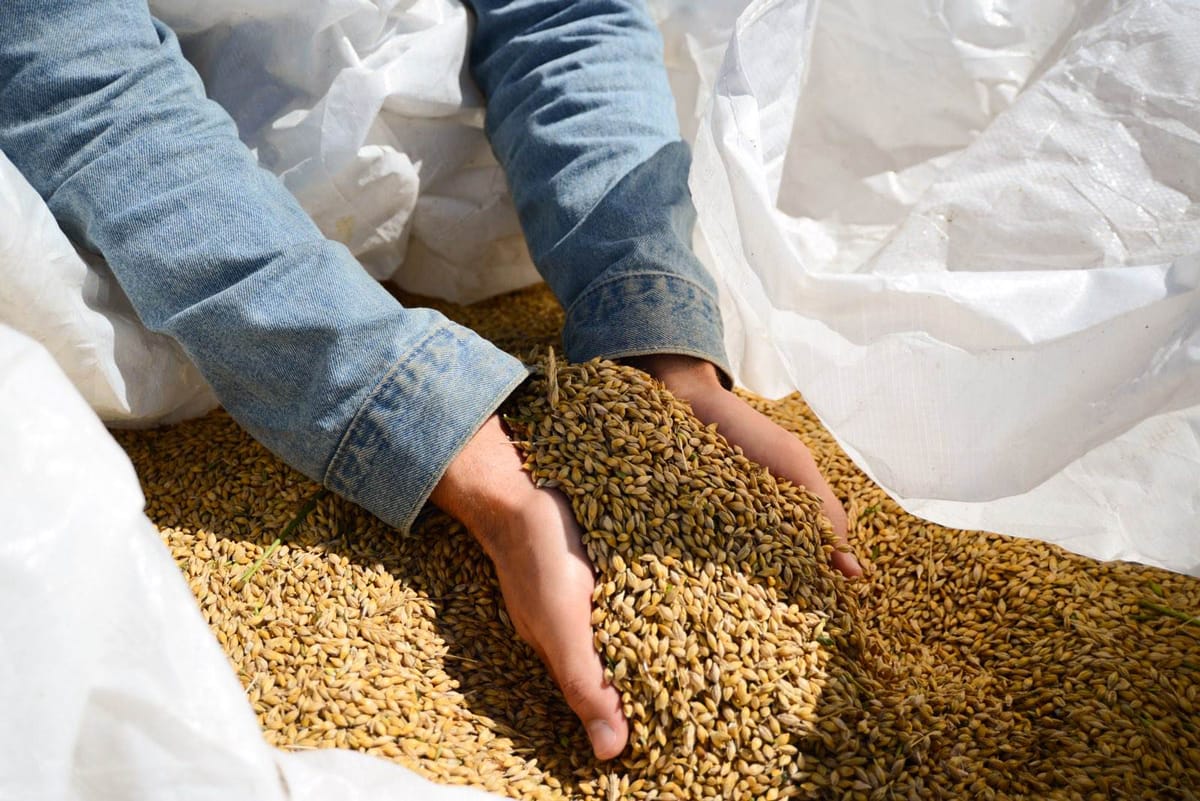
And none more than Locality’s MacInnes and Hamer, who first planted a test crop of barley in 2016, inspired by what MacInnes said was “the crazy idea” of ultimately making beer with it. Opening a brewery may not actually seem so crazy these days, but it’s the way that they approached the farming side of things that seems—well, unconventional. They cut down their first crop with handheld scythes—“like in the old, old, old days,” said MacInnes. To their surprise, the barley they harvested met maltsters’ specifications, so, in the next year, they planted out five acres. This time, unwilling to commit to another hand harvest, they decided to invest in equipment, whereupon Hamer (whom MacInnes described as “a major Craigslist lover”) located the perfect tool at the right price. It was no problem that neither of them knew how to operate the 70-year-old thresher when it arrived from Alberta—a friendly volunteer from the BC Farm Museum, who’d grown up using a similar machine, helped them figure it out.
There was still one problem: the barley crop was too small to ship away for custom malting. So Hamer — who happens to be an engineer—set to work building a small-scale malthouse. Now Locality is set up to produce half a ton of malt at a time, which allows them not just to malt their own grain but also to fill custom malting orders for other small, local producers.
One of those is Chilliwack’s Farmhouse Brewing, whose ten-acre property will produce an estimated eight tons of barley per year. Farmhouse is the most recent farm brewery to open in B.C., and as head brewer Josh Rempel confirmed, it “would not have happened” were it not for the 2017 change in ALR regulations. Still, Farmhouse is committed to growing as much of their own ingredients as possible, with approximately half of their property planted with barley, and another two being developed into a small hop yard in partnership with Bredenhof Hop Farms. The value of a farm brewery, for Rempel, doesn’t depend on the brewery achieving complete self-sufficiency. “It’s about bringing people closer to the product that they’re actually drinking,” he said. For Farmhouse, that rests on a combination of growing their own grain and hops, as well as using locally-sourced ingredients such as berries.
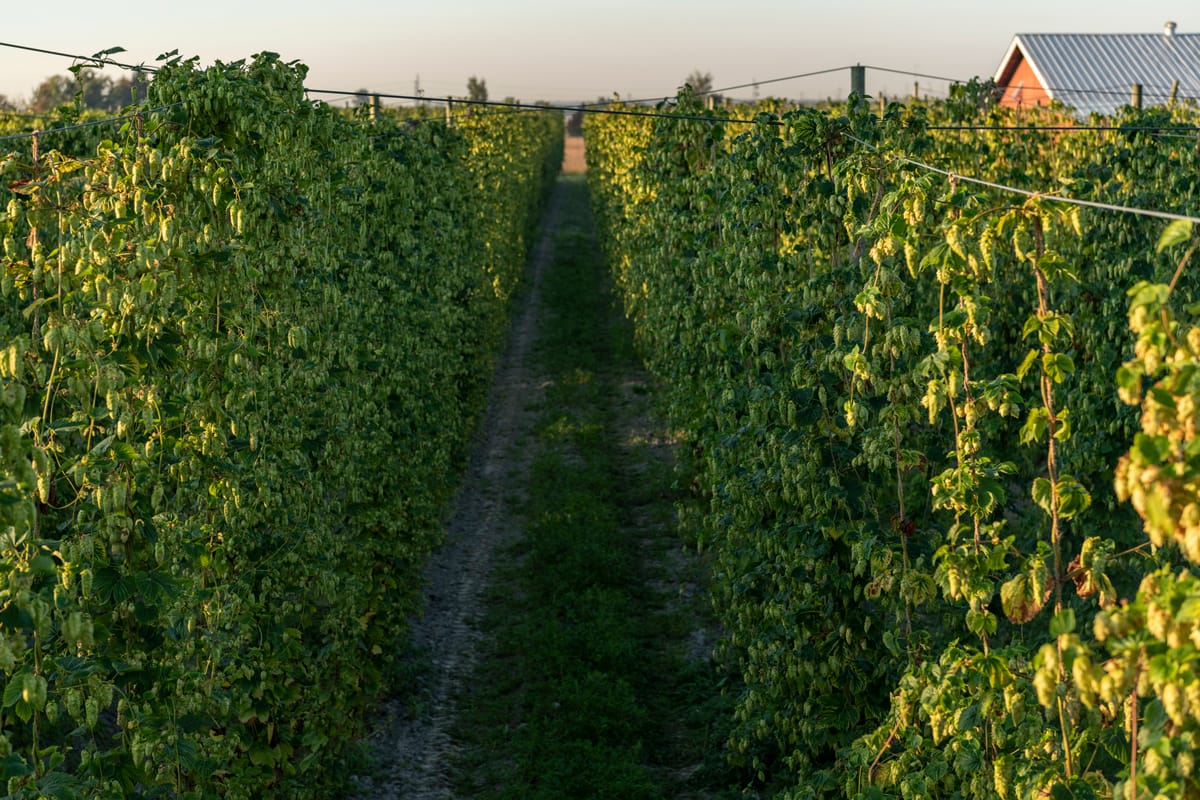
On the other hand, self-sufficiency looks different for Ladner’s Barnside Brewing, where co-owner Ken Malenstyn not only cheerfully told me “We don’t buy hops”—words many cash-strapped brewery owners would love to be able to speak — but also that the hundreds of acres of farmland adjacent to the brewery also produce more than enough barley to keep the mash tun full year-round. Barnside, a partnership between four neighbouring farm families, opened in 2020, and given the productivity of their barley and hops, they would have been able to do so even had ALR regulations not been loosened in 2017. Yet Malenstyn believes that the changes are beneficial, at least in theory. “If it’s for actual farmers to find a new market to be involved in,” he said, “and to leverage their existing farm in different ways and create some vertical integration—that’s awesome.” By way of example, Malenstyn explained to me that farmers sometimes grow barley in rotation with other crops, and the harvest is often used for animal feed. By reserving the barley grown this way for malting—and then transforming it into beer—Barnside extracts extra value from a crop that otherwise might struggle to pay its own way.
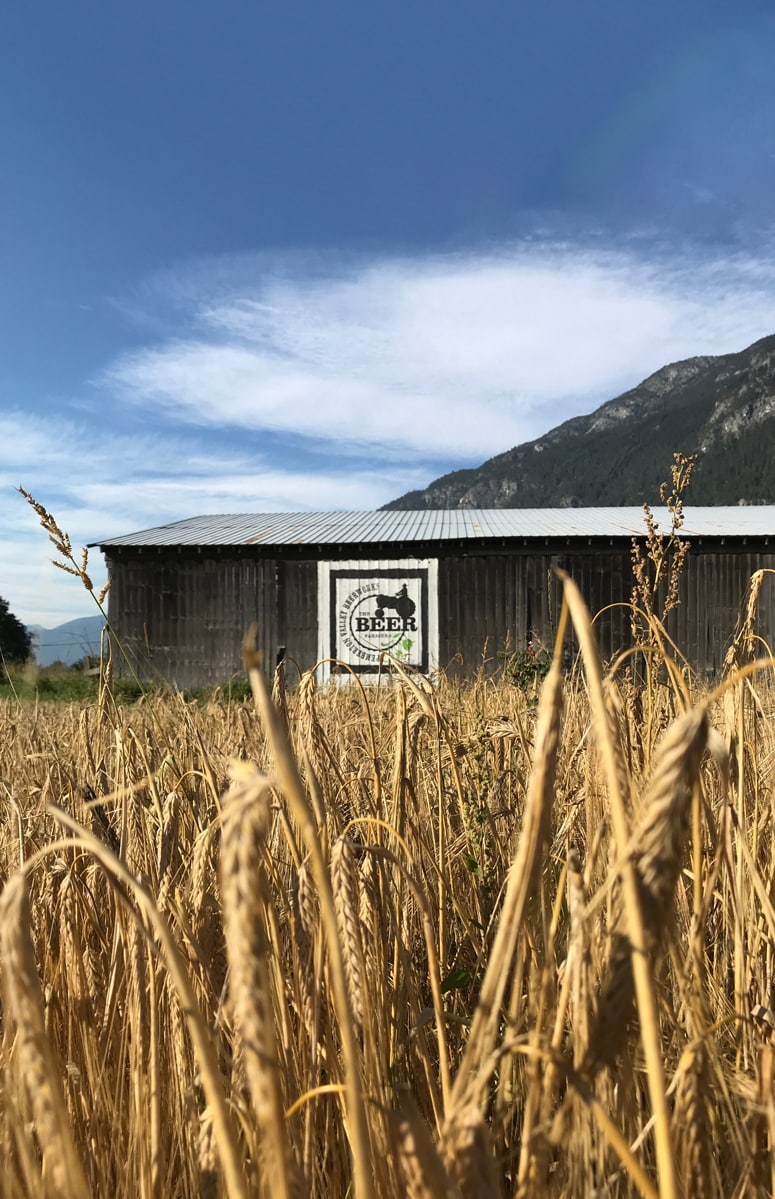
And then there’s another sort of value—one that’s hard to put a price on. At The Beer Farmers, which opened in 2018 on the Miller family farm in Pemberton, the brewery is just the latest project on a long-standing family farm. William Miller purchased the land in 1911, and, according to his great-grandson, Beer Farmers co-founder Will Miller, “there’s been a crop of potatoes here every year since that.” The brewery is a family pursuit, with Will’s mom Brenda brewing the beer, his father Bruce taking the lead on the farm, and Will, in his words, doing “everything else,” including leading the planning and construction of a small-scale malthouse that will process the farm’s barley crop. Opening a brewery has provided the family with an opportunity to diversify and add value to the farm’s output, but also to carry on a farming tradition, even in an untraditional way.
As outsiders to the B.C. craft beer scene, we can expect Miller and his fellow farm brewers to show us a thing or two. They might even disrupt some prevailing trends, like beer lovers’ geography-defying obsession with exotic fruits and imported hops. What we can count on, though, is that their first loyalty is to the soil. As Miller said, “We see ourselves as farmers that opened a brewery, not brewers that bought a farm.”


